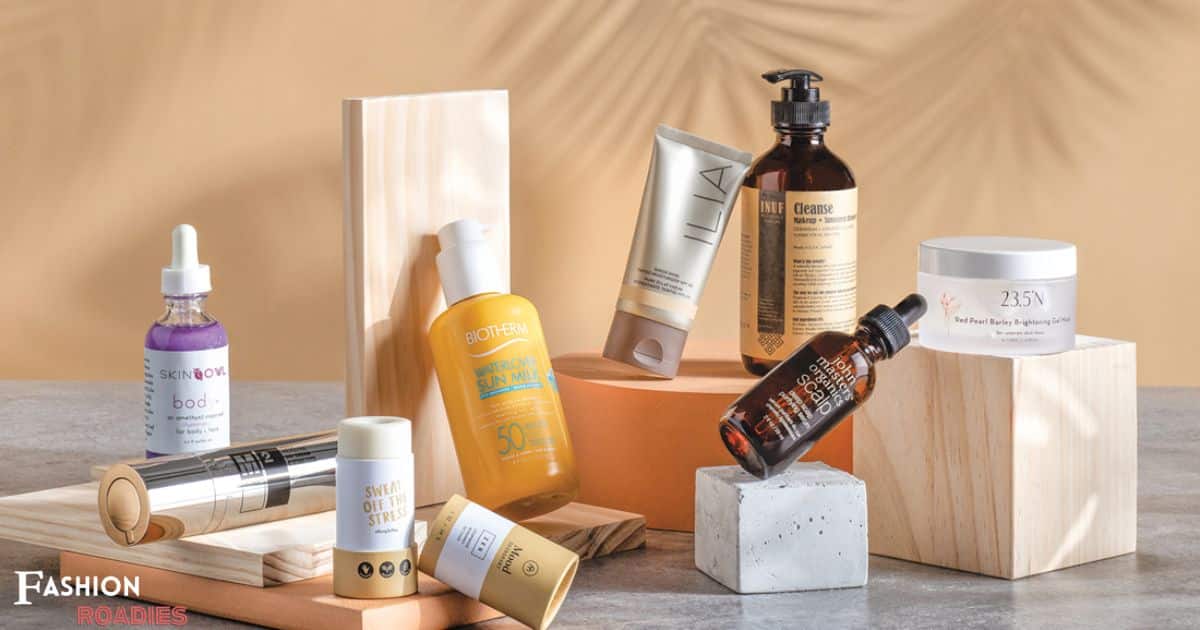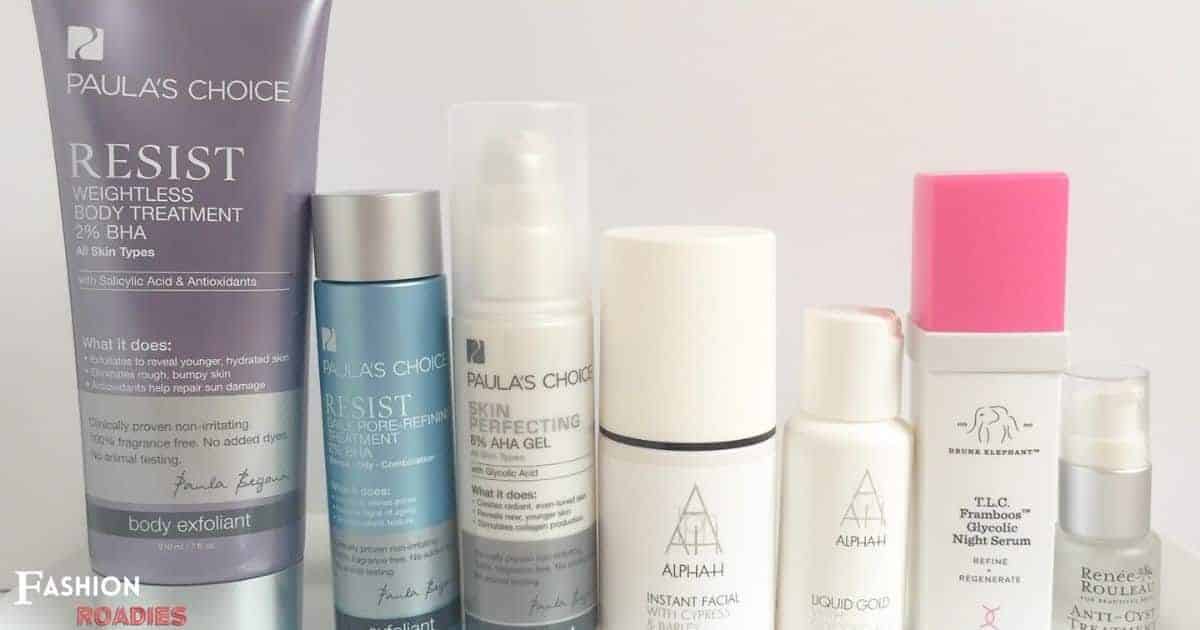Welcome to our article on “What Skin Care Products Not to Mix.” In the fast-paced world of skincare, it’s essential to navigate the ever-expanding range of products with caution. Ignoring this can lead to undesirable effects, such as irritation, breakouts, or skin damage. Fear not, as we provide expert advice on which product combinations to avoid, ensuring your skincare routine remains effective and harmonious. Let’s dive into the world of skincare science and discover the secrets to achieving a healthy, glowing complexion.
Key Takeaways
- Hyaluronic acid and exfoliating acids should be used at different times in your skincare routine to prevent irritation and dryness.
- Retinol should be applied at night and vitamin C should be applied in the morning to maximize their benefits and minimize sensitivity to the sun.
- Benzoyl peroxide and salicylic acid can be used together to target multiple aspects of acne, but may cause dryness and irritation.
- Niacinamide and vitamin C can be applied together to enhance the brightness and evenness of the skin tone, but some individuals may experience mild irritation.
Hyaluronic Acid and Exfoliating Acids
The compatibility of hyaluronic acid and exfoliating acids is a crucial consideration when formulating skincare products. Hyaluronic acid, known for its moisturizing properties, is a popular ingredient in many skincare products due to its ability to attract and retain moisture in the skin. On the other hand, exfoliating acids like glycolic acid and salicylic acid are used to slough off dead skin cells and promote cell turnover. While both these ingredients offer potential benefits for the skin, it is important to use them properly to avoid any potential negative effects. It is generally recommended to use hyaluronic acid and exfoliating acids at different times in your skincare routine to prevent any potential interactions that may cause irritation or dryness. Considering the recommended usage of these ingredients can help ensure the effectiveness and safety of your skincare regimen.
Retinol and Vitamin C
Using retinol and vitamin C together can enhance the overall effectiveness of your skincare routine. Both ingredients have their own unique benefits and when combined, they can provide even greater results for your skin.
Retinol, a derivative of vitamin A, is known for its anti-aging properties. It helps to stimulate collagen production, reduce the appearance of fine lines and wrinkles, and even out skin tone. On the other hand, vitamin C is a powerful antioxidant that can brighten the skin, fade dark spots, and protect against environmental damage.
When using these ingredients together, it is important to apply them correctly. Experts recommend applying retinol at night, as it can make your skin more sensitive to the sun. Vitamin C, on the other hand, can be used in the morning to provide antioxidant protection throughout the day.
Benzoyl Peroxide and Salicylic Acid
Combining benzoyl peroxide and salicylic acid can maximize the effectiveness of your acne treatment regimen, helping to reduce inflammation and unclog pores. Benzoyl peroxide is a powerful antibacterial agent that kills acne-causing bacteria and reduces excess oil production, while salicylic acid exfoliates the skin and helps to unclog pores. When used together, these two ingredients can target multiple aspects of acne, leading to clearer and healthier skin.
However, it is important to note that benzoyl peroxide and salicylic acid can also have potential side effects. Benzoyl peroxide may cause dryness, redness, and irritation, especially for those with sensitive skin. Salicylic acid, on the other hand, can cause dryness and peeling if used excessively or if the concentration is too high.
If you experience any of these side effects, it is important to adjust your skincare routine accordingly. There are alternative acne treatment options available that may be better suited for your skin type, such as sulfur, tea tree oil, or retinoids. It is always recommended to consult with a dermatologist to determine the best treatment plan for your specific needs.
Niacinamide and Vitamin C
Applying niacinamide and vitamin C together can enhance the overall brightness and evenness of the skin tone, providing a synergistic effect in promoting a more radiant complexion. Niacinamide, also known as vitamin B3, helps to improve the skin’s barrier function, reduce redness, and minimize the appearance of pores. Vitamin C, on the other hand, is a powerful antioxidant that can help brighten the skin and fade dark spots. When used together, these ingredients can complement each other’s benefits and provide a more effective solution for achieving a youthful and even skin tone.
However, it is important to note that there may be potential side effects when using niacinamide and vitamin C together. Some individuals may experience mild irritation or redness, especially if they have sensitive skin. To minimize the risk of side effects, it is crucial to properly cleanse and prepare the skin before application. Additionally, proper application techniques should be followed, such as using a pea-sized amount of each product and gradually increasing the frequency of use to allow the skin to adjust.
AHA/BHA Exfoliants and Physical Scrubs
AHA/BHA exfoliants and physical scrubs are two popular methods of exfoliating the skin. AHA/BHA exfoliants, also known as chemical exfoliants, use ingredients like glycolic acid or salicylic acid to dissolve dead skin cells and unclog pores. On the other hand, physical scrubs use gentle abrasives to physically slough off dead skin. While both methods can be effective, it’s important to be mindful of potential skin irritation and choose the option that works best for your skin type and sensitivity.
Chemical Vs. Physical Exfoliation
In the realm of skincare, the efficacy and potential side effects of chemical exfoliation, such as AHA/BHA exfoliants, versus physical exfoliation through the use of scrubs, remain a topic of fervent debate among professionals. Chemical exfoliation involves the use of acids, such as alpha hydroxy acids (AHAs) and beta hydroxy acids (BHAs), to gently remove dead skin cells and unclog pores. This method offers several benefits, including improved skin texture, reduced appearance of fine lines and wrinkles, and increased collagen production. Chemical exfoliation is also suitable for all skin types, including sensitive skin. On the other hand, physical exfoliation utilizes abrasive particles or tools to physically scrub away dead skin cells. While it can provide immediate results and a satisfying sensation, it can also lead to irritation, especially if done too aggressively or with harsh ingredients. It is important to consider potential skin irritation when choosing between chemical and physical exfoliation methods.
Potential Skin Irritation
The potential for skin irritation should be taken into account when considering the use of AHA/BHA exfoliants or physical scrubs. These products, while effective in removing dead skin cells and improving skin texture, can also cause allergic reactions and irritate sensitive skin. It is important to understand the potential risks involved and take necessary precautions to avoid any adverse reactions.
When it comes to skincare, it’s crucial to be mindful of common mistakes that can lead to skin irritation. Some of these mistakes include using multiple exfoliating products at once, over-exfoliating the skin, and not patch testing new products before applying them to the entire face.
To prevent potential allergic reactions and irritation, it is recommended to:
- Limit the use of exfoliating products to 1-2 times per week.
- Patch test new products on a small area of skin before incorporating them into your routine.
- Avoid combining multiple exfoliating products or using them in conjunction with other potentially irritating ingredients, such as retinol or benzoyl peroxide.
Essential Oils and Chemical Peels
When it comes to combining essential oils and chemical peels, caution is advised. Essential oils are highly concentrated and can potentially cause adverse reactions when applied to the skin, especially when combined with the strong exfoliating effects of chemical peels. It is important to seek expert advice before mixing these two skincare products to ensure the safety and effectiveness of your skincare routine.
Caution With Mixing
Combining more than two essential oils with chemical peels can potentially lead to skin irritation and should be avoided. It is important to understand the potential allergic reactions and long-term effects that can occur when mixing these skincare products. Here are some key points to consider:
- Essential oils are highly concentrated plant extracts that can cause skin sensitivity and irritation when not properly diluted. Mixing multiple oils increases the risk of adverse reactions.
- Chemical peels are designed to exfoliate and rejuvenate the skin. When combined with essential oils, the peel’s effectiveness may be compromised, leading to less desirable results.
- Long-term effects of combining essential oils with chemical peels are not yet fully understood. However, there is a potential for increased skin sensitivity, dryness, and even hyperpigmentation.
To ensure the safety and effectiveness of your skincare routine, it is best to consult with a dermatologist or skincare professional before combining essential oils with chemical peels. They can provide personalized advice and recommend suitable alternatives to achieve your desired results.
Potential Skin Reactions
Potential skin reactions, such as irritation and hyperpigmentation, can occur when essential oils and chemical peels are combined. While both essential oils and chemical peels have their own benefits when used separately, their combination can have adverse effects on the skin. Essential oils are concentrated plant extracts that can cause potential allergic reactions and sensitivities in some individuals. On the other hand, chemical peels are designed to exfoliate the skin and may cause long-term effects such as increased sensitivity to the sun or uneven skin tone. It is important to understand the potential risks associated with mixing these products and to seek expert advice before doing so. By consulting a skincare professional, you can ensure that you are using products safely and effectively to achieve the best results for your skin.
Expert Advice Needed
In order to make informed decisions about the use of essential oils and chemical peels, it is essential to seek expert advice from skincare professionals. Expert opinions can provide valuable insights into the potential risks and benefits associated with these products, helping individuals avoid common mistakes that can lead to adverse reactions or ineffective results. When seeking expert advice, it is important to consider the following:
- Understand your skin type and concerns: Skincare professionals can assess your specific needs and recommend suitable products based on your skin type and concerns.
- Proper application techniques: Experts can guide you on the correct way to apply essential oils and chemical peels to ensure optimal results and minimize the risk of irritation or damage.
- Compatibility with other products: Skincare professionals can advise on which products can be safely combined and those that should not be mixed to avoid any negative interactions.
Prescription Medications and Over-the-Counter Products
When using prescription medications, it is crucial to be aware of the possible interactions with over-the-counter products. Mixing certain medications with over-the-counter products can lead to potential side effects and drug interactions that may be harmful to your health. It is important to consult with your healthcare provider or pharmacist before using any over-the-counter products while taking prescription medications.
Some over-the-counter products, such as certain pain relievers, antacids, or herbal supplements, can interfere with the effectiveness of prescription medications or increase the risk of side effects. For example, taking over-the-counter pain relievers like ibuprofen or aspirin while on blood thinners can increase the risk of bleeding. Similarly, combining certain herbal supplements with antidepressants can lead to serotonin syndrome, a potentially life-threatening condition.
To ensure your safety, always read the labels of over-the-counter skin care products not to fix and check for any potential interactions with your prescription medications. If you have any doubts or questions, don’t hesitate to reach out to your healthcare provider or pharmacist for guidance. Remember, your health is important, and being informed about potential interactions is essential for your well-being.
Frequently Asked Questions
Can I Use Hyaluronic Acid and Exfoliating Acids Together?
Using hyaluronic acid and exfoliating acids together can provide numerous benefits for the skin. Hyaluronic acid helps to hydrate and plump the skin, while exfoliating acids can help to remove dead skin cells and promote cell turnover.
Is It Safe to Combine Retinol and Vitamin C in My Skincare Routine?
While both retinol and vitamin C are effective in skincare, combining them may lead to potential side effects. It is important to use them separately to ensure optimal results and minimize any potential adverse reactions.
Can I Use Benzoyl Peroxide and Salicylic Acid at the Same Time?
Using benzoyl peroxide and salicylic acid together is generally not recommended as they can be harsh and potentially irritate the skin. It’s best to use them separately to avoid any potential side effects.
Is It Okay to Use Niacinamide and Vitamin C Together?
Incorporating niacinamide and vitamin C into your skincare routine can provide numerous benefits, such as brightening the skin, reducing hyperpigmentation, and boosting collagen production. However, combining these two ingredients may potentially lead to skin irritation or flushing.
Can I Use Aha/Bha Exfoliants Along With Physical Scrubs?
When it comes to exfoliating your skin, it’s important to consider the type of exfoliants you’re using. AHA/BHA exfoliants and physical scrubs can be used together, but it’s advisable to avoid using physical scrubs daily for optimal skin health.
Conclusion
In conclusion, it is crucial to be aware of the potential negative interactions between certain skin care products. Mixing incompatible ingredients can lead to skin irritation, dryness, or even more severe reactions. Like a delicate balance between ingredients in a recipe, the harmony of our skin care routine is essential to achieve optimal results. It is wise to consult with a dermatologist or skin care specialist to create a personalized regimen that caters to your specific needs and avoids harmful combinations.










